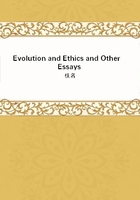
第62章
The "Times," December 1st, 1890 SIR: A short time ago a generous and philanthropic friend wrote to me, placing at my disposal a large sum of money for the furtherance of the vast scheme which the "General" of the Salvation Army has propounded, if I thought it worthy of support. The responsibility of advising my benevolent correspondent has weighed heavily upon me, but I felt that it would be cowardly, as well as ungracious, to refuse to accept it. I have therefore studied Mr. Booth's book with some care, for the purpose of separating the essential from the accessory features of his project, and I have based my judgment--I am sorry to say an unfavourable one--upon the data thus obtained. Before communicating my conclusions to my friend, however, I am desirous to know what there may be to be said in arrest of that judgment; and the matter is of such vast public importance that I trust you will aid me by publishing this letter, notwithstanding its length.
There are one or two points upon which I imagine all thinking men have arrived at the same convictions as those from which Mr. Booth starts.
It is certain that there is an immense amount of remediable misery among us, that, in addition to the poverty, disease, and degradation which are the consequences of causes beyond human control, there is a vast, probably a very much larger, quantity of misery which is the result of individual ignorance, or misconduct, and of faulty social arrangements. Further, I think it is not to be doubted that, unless this remediable misery is effectually dealt with, the hordes of vice and pauperism will destroy modern civilization as effectually as uncivilized tribes of another kind destroyed the great social organization which preceded ours. Moreover, I think all will agree that no reforms and improvements will go to the root of the evil unless they attack it in its ultimate source--namely, the motives of the individual man. Honest, industrious, and self-restraining men will make a very bad social organization prosper; while vicious, idle, and reckless citizens will bring to ruin the best that ever was, or ever will be, invented.
The leading propositions which are peculiar to Mr. Booth I take to be these:-,That the only adequate means to such reformation of the individual man is the adoption of that form of somewhat corybantic Christianity of which the soldiers of the Salvation Army are the militant missionaries. This implies the belief that the excitement of the religious emotions (largely by processes described by their employers as "rousing" and "convivial") is a desirable and trustworthy method of permanently amending the conduct of mankind.
I demur to these propositions. I am of opinion that the testimony of history, no less than the cool observation of that which lies within the personal experience of many of us, is wholly adverse to it.
That the appropriate instrument for the propagation and maintenance of this peculiar sacramental enthusiasm is the Salvation Army--a body of devotees, drilled and disciplined as a military organization, and provided with a numerous hierarchy of officers, every one of whom is pledged to blind and unhesitating obedience to the "General," who frankly tells us that the first condition of the service is "implicit, unquestioning obedience." "A telegram from me will send any of them to the uttermost parts of the earth"; every one "has taken service on the express condition that he or she will obey, without questioning, or gainsaying, the orders from headquarters" ("Darkest England," p. 243).
This proposition seems to me to be indisputable. History confirms it. Francis of Assisi and Ignatius Loyola made their great experiments on the same principle. Nothing is more certain than that a body of religious enthusiasts (perhaps we may even say fanatics) pledged to blind obedience to their chief, is one of the most efficient instruments for effecting any purpose that the wit of man has yet succeeded in devising. And I can but admire the insight into human nature which has led Mr. Booth to leave his unquestioning and unhesitating instruments unbound by vows. A volunteer slave is worth ten sworn bondsmen.
That the success of the Salvation Army, with its present force of 9416 officers "wholly engaged in the work," its capital of three quarters of a million, its income of the same amount, its 1375 corps at home, and 1499 in the colonies and foreign countries (Appendix, pp. 3 and 4), is a proof that Divine assistance has been vouchsafed to its efforts.
Here I am not able to agree with the sanguine Commander-in-chief of the new model, whose labours in creating it have probably interfered with his acquisition of information respecting the fate of previous enterprises of like kind.
It does not appear to me that his success is in any degree more remarkable than that of Francis of Assisi or that of Ignatius Loyola, than that of George Fox, or even than that of the Mormons, in our own time. When I observe the discrepancies of the doctrinal foundations from which each of these great movements set out, I find it difficult to suppose that supernatural aid has been given to all of them; still more, that Mr. Booth's smaller measure of success is evidence that it has been granted to him.